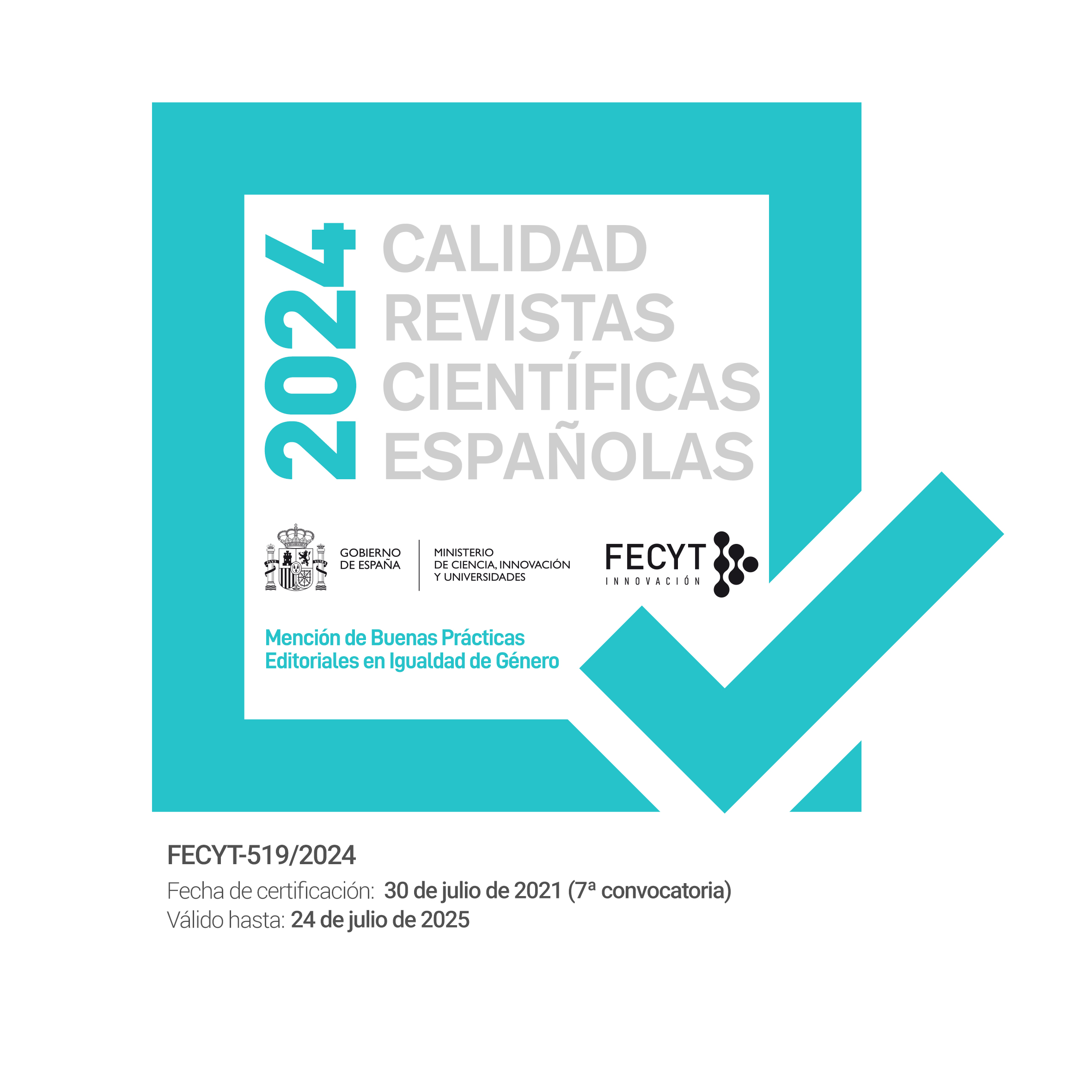The role of the cognitive model profile in knowledge representation and meaning construction: the case of the lexical item Europe
Palabras clave:
LCCM Theory, meaning construction, knowledge representation, cognitive model pro-file, EuropeResumen
The paper addresses the role of the cognitive model profile, one of the fundamental constructs in LCCM Theory (a.k.a. access semantics), in meaning construction and knowledge representation with respect to the concept of Europe. The study is based on a corpus of news articles retrieved from the Guardian from May 2004 through December 2009 (approximately 930,000 words) and focuses on the lexical item Europe (over 4000 corpus occurrences). The study takes its theoretical underpinnings from LCCM Theory, a theory of lexical representation and semantic composition, which delineates the roles the linguistic and the conceptual systems play in meaning construction (e.g., Evans 2009, 2013).
The paper documents the immense semantic potential of the lexical item Europe as manifest in the Guardian’s discourse under analysis. In terms of knowledge representation, to account for the coherent body of multimodal knowledge which the lexical item Europe affords access to, its cognitive model profiles relevant to its two lexical concepts are constructed. As far as the role of the cognitive model profile in meaning construction is concerned, the study demonstrates how the context, specifically the co-text, determines the activation of a respective portion of the cognitive model profile of the lexical item Europe.
Descargas
Citas
Bergen, B.K. (2012). Louder than words: The new science of how the mind makes meaning. New York: Basic Books.
Evans, V. (2006). Lexical concepts, cognitive models and meaning construction. Cognitive Linguistics, 17, 491-534.
Evans, V. (2007). A glossary of Cognitive Linguistics. Edinburgh: Edinburgh University Press.
Evans, V. (2009). How words mean: lexical concepts, cognitive models, and meaning construction. Oxford: Oxford University Press.
Evans, V. (2013). Language and time: A Cognitive Linguistics approach. Cambridge: Cambridge University Press.
Evans, V. & Green, M. (2006). Cognitive Linguistics: An introduction. Edinburgh: Edinburgh University Press.
Evans, V., Bergen, B.K. & Zinken, J. (2007). The cognitive linguistic enterprise: An overview. In V. Evans, B.K. Bergen & J. Zinken (Eds.), The cognitive linguistics reader (pp. 2-36). London: Equinox.
Fillmore, Ch. (1982). Frame Semantics. In Linguistic Society of Korea (Ed.), Linguistics in the morning calm (pp. 111-137). Seoul: Hanshin Publishing.
Goldberg, A.E. (1995). Constructions: A Construction Grammar approach to argument structure. Chicago: University of Chicago Press.
Goldberg, A.E. (2006). Constructions at work: The nature of generalization in language. Oxford: Oxford University Press.
Lakoff, G. (1987). Women, fire, and dangerous things: What categories reveal about the mind. Chicago: University of Chicago Press.
Langacker, R.W. (1987). Foundations of Cognitive Grammar: Vol. 1. Theoretical prerequisites. Stanford, CA: Stanford University Press.
Langacker, R.W. (1991). Foundations of Cognitive Grammar: Vol. 2. Descriptive application. Stanford, CA: Stanford University Press.
Langacker, R.W. (2008). Cognitive Grammar: A basic introduction. Oxford: Oxford University Press.
Scott, M. (1996). Wordsmith Tools. Oxford: Oxford University Press.
Talmy, L. (2000). Towards a Cognitive Semantics (Vols. 1 and 2). Cambridge, MA: MIT Press.
Taylor, J.R. (2002). Category extension by metonymy and metaphor. In R. Dirven & R. Pörings (Eds.), Metaphor and metonymy in comparison and contrast (pp. 323-47). Berlin: Mouton de Gruyter.
Taylor, J.R. (2010). Review of how words mean: Lexical concepts, cognitive models, and meaning construction by V. Evans. Journal of Linguistics, 46, 503-508.
Descargas
Publicado
Cómo citar
Número
Sección
Licencia
Aquellos autores/as que tengan publicaciones con esta revista, aceptan los términos siguientes:
- Los autores/as conservarán sus derechos de autor y garantizarán a la revista el derecho de primera publicación de su obra, el cuál estará simultáneamente sujeto a la Licencia de reconocimiento de Creative Commons que permite a terceros compartir la obra siempre que se indique su autor y su primera publicación esta revista.
- Los autores/as podrán adoptar otros acuerdos de licencia no exclusiva de distribución de la versión de la obra publicada (p. ej.: depositarla en un archivo telemático institucional o publicarla en un volumen monográfico) siempre que se indique la publicación inicial en esta revista.
- Se permite y recomienda a los autores/as difundir su obra a través de Internet (p. ej.: en archivos telemáticos institucionales o en su página web) antes y durante el proceso de envío, lo cual puede producir intercambios interesantes y aumentar las citas de la obra publicada. (Véase El efecto del acceso abierto).

Revista de Lenguas para fines específicos is licensed under a Creative Commons Reconocimiento-NoComercial-SinObraDerivada 4.0 Internacional License.























